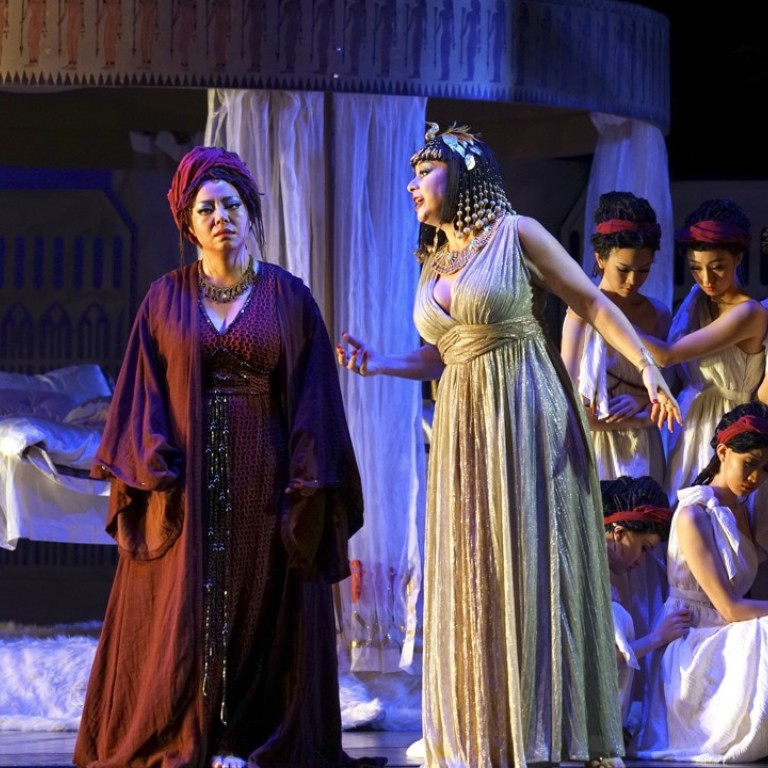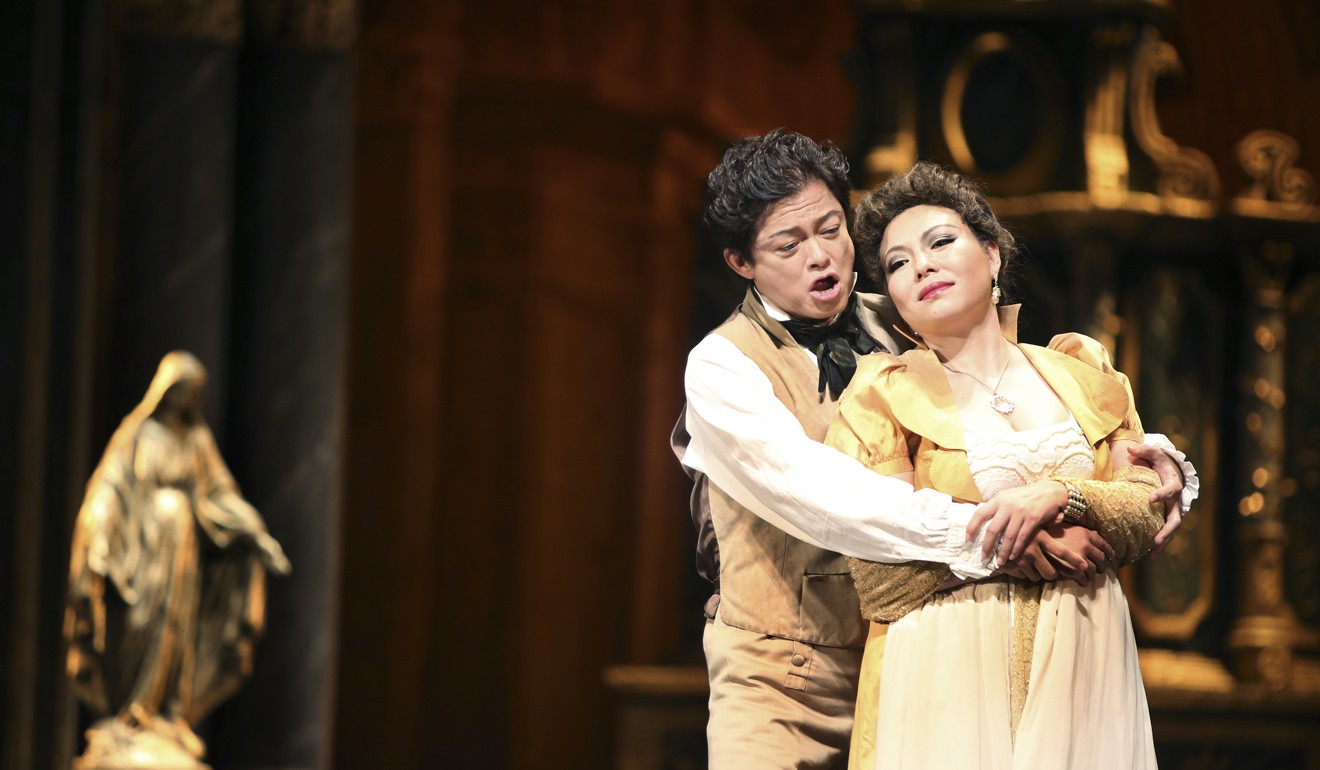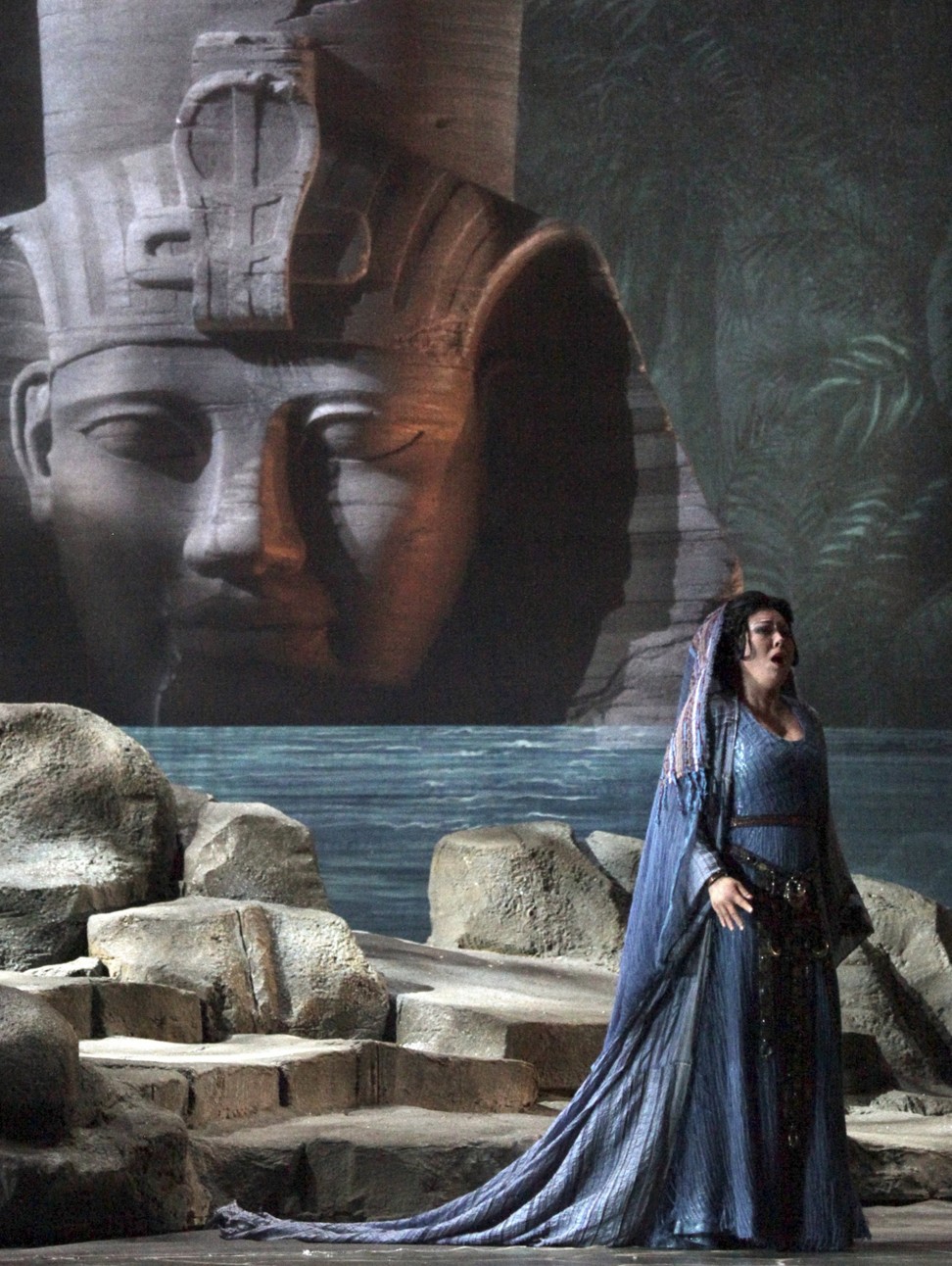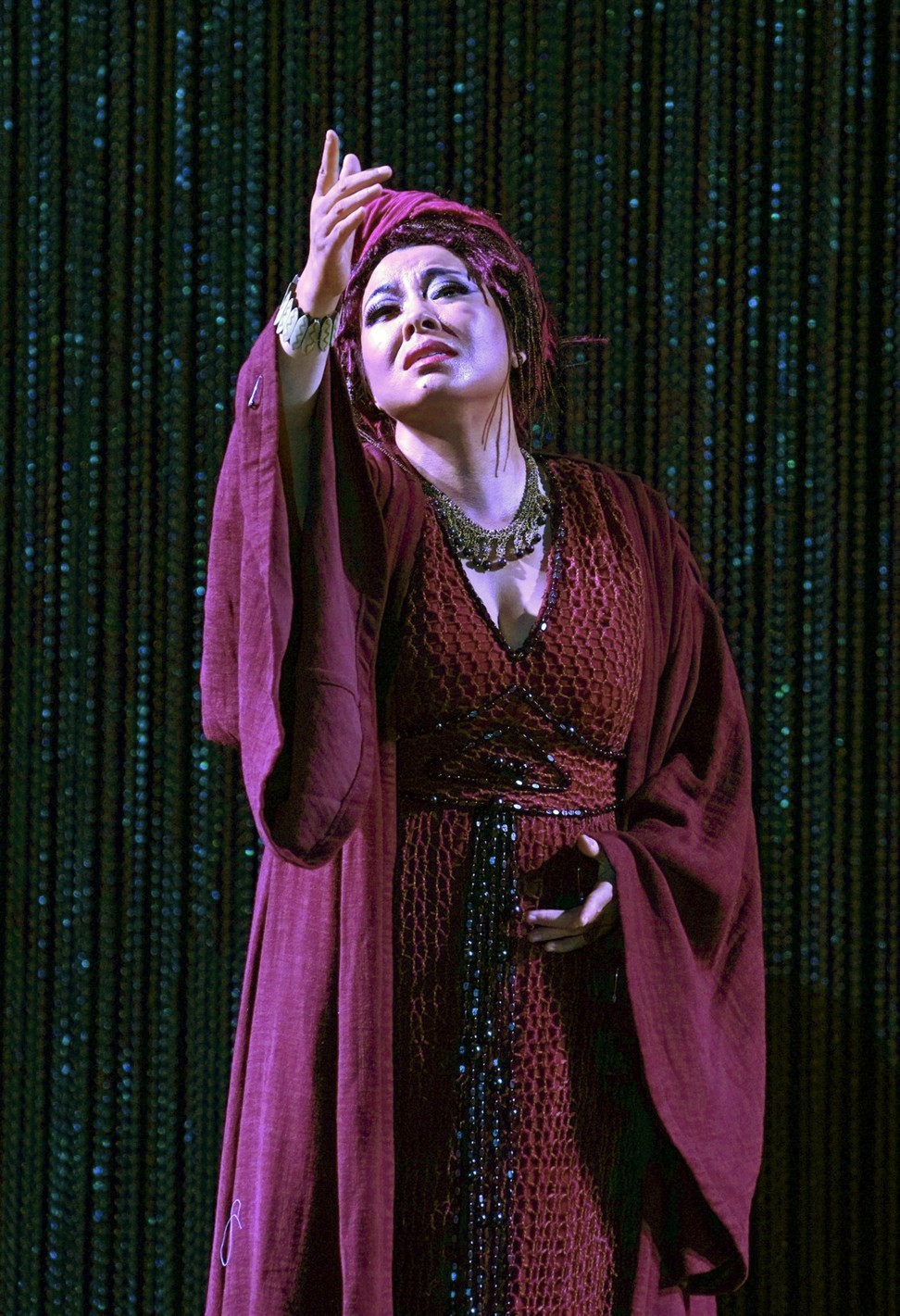
Chinese soprano He Hui talks about singing Aida for Placido Domingo and loving the role she’ll perform in Hong Hong this month
Since her debut in 1998, He has sung the role of Aida in some of the best-known opera houses in the world; she returns to Hong Kong to reprise her favourite part in a new joint production by Shanghai Opera House and Opera Hong Kong
For Chinese soprano He Hui, the role of Verdi’s Aida is one close to her heart. It was the first role she sang when at the age of 26, she was cast as the Ethiopian princess in the all-Chinese production of Aida at the opening of the Shanghai Grand Theatre in 1998.
Two years later, she sang O patria mia, Aida’s lament for the homeland she’ll never see again, in the finals of Placido Domingo’s Operalia competition, where she placed second, a result that launched her career.
Later she became the first Chinese soprano to sing the role of Aida at the Vienna State Opera and, in 2010, at New York’s Metropolitan. She sang it with great success at Milan’s La Scala in 2013 and for the past 12 years, she has sung the role each summer at the Arena opera festival in Verona’s Roman amphitheatre.
Having sung it more than 150 times, He now returns to Hong Kong on October 10 for Opera Hong Kong’s new production of the Verdi classic by Jean-Louis Grinda, where she once again takes on the role she knows so well.
“When I was starting out, Aida was my first role and since then I’ve had the opportunity to sing at some of the major opera houses in the world,” says He. “I feel my voice is well suited to Aida and I feel lucky to be able to sing this role.”

Ninth Hong Kong cinema to screen opera broadcasts from New York Met as audience reaches ‘critical mass’
This is part of what has made her so successful. The Italian opera agent Giorgio Benati brought her to Italy in 2001 after her Operalia success and she has been based in Verona ever since. She made her debut in front of the notoriously difficult audience at the Teatro Regio di Parma in 2002, earning the role of Puccini’s Tosca off the back of a single aria. Ahead of her Italian debut, she was mentored by the Bulgarian soprano Raina Kabaivanska, renowned as one of the world’s best Toscas.
“For me, Kabaivanska was an angel,” He Hui says. “She taught me how to move, how to get inside Tosca’s head.”
The Parma debut was a success, and she was soon performing at some of the world’s most important opera houses. Her 2004 portrayal of Cio-Cio-san in Puccini’s Madama Butterfly in Vienna had critics calling it “the best Butterfly you could ever wish for” (she performed the role in 2006 in Hong Kong to similar accolades) and she has become known around the world for her interpretations of Butterfly, Tosca and Aida. She has sung those three roles close to 400 times.

“It’s a beautiful thing,” she says of her profession. “I think it is one of the most difficult and interesting jobs in the world. There are a lot of sacrifices – you’re always travelling, living out of a suitcase and in hotel rooms. There’s a lot of work, a lot of study. But I get a lot of joy from singing and then I try to transmit this joy to the audiences when I’m on stage.”
He heard opera for the first time as an 18-year-old student at the Conservatory of Music in Xian, the city where she grew up. A recording of Puccini’s La Bohème brought her to tears.
“I didn’t understand the music, the words or the story but the tears came and I felt a deep connection,” He says.

It was only after she was in the Chinese cast of Aida in Shanghai in 1998 that an American working on the production approached her and told her she should audition for Operalia. The next year she left China for the first time to study for a month in Verona, where Domingo happened to be performing at the Arena.
She asked for – and got – an audition, which led to her being invited to compete in Domingo’s competition for young opera singers.
Rossini as rom-com: Opera Hong Kong sets The Barber of Seville in Hollywood’s golden age
Last month He performed Aida again at the Grand Theatre in Shanghai, as part of the co-production between the Shanghai Opera House and Opera Hong Kong.
Although it might be easy to point out He’s affinity with Butterfly (indeed, she has said she feels “natural” in the role of Cio-Cio-san), she also feels close to the role of Aida.
“Aida lives in a different country, far from what she knows and from her family and I see that in myself, being a Chinese singer in Italy,” He says.
“I think one of the reasons I’ve found success with the role is because I understand her character and I can be completely in the mindset of Aida. When I sing O patria mia it’s inevitable that I think of China and the nostalgia I have for my country.”
